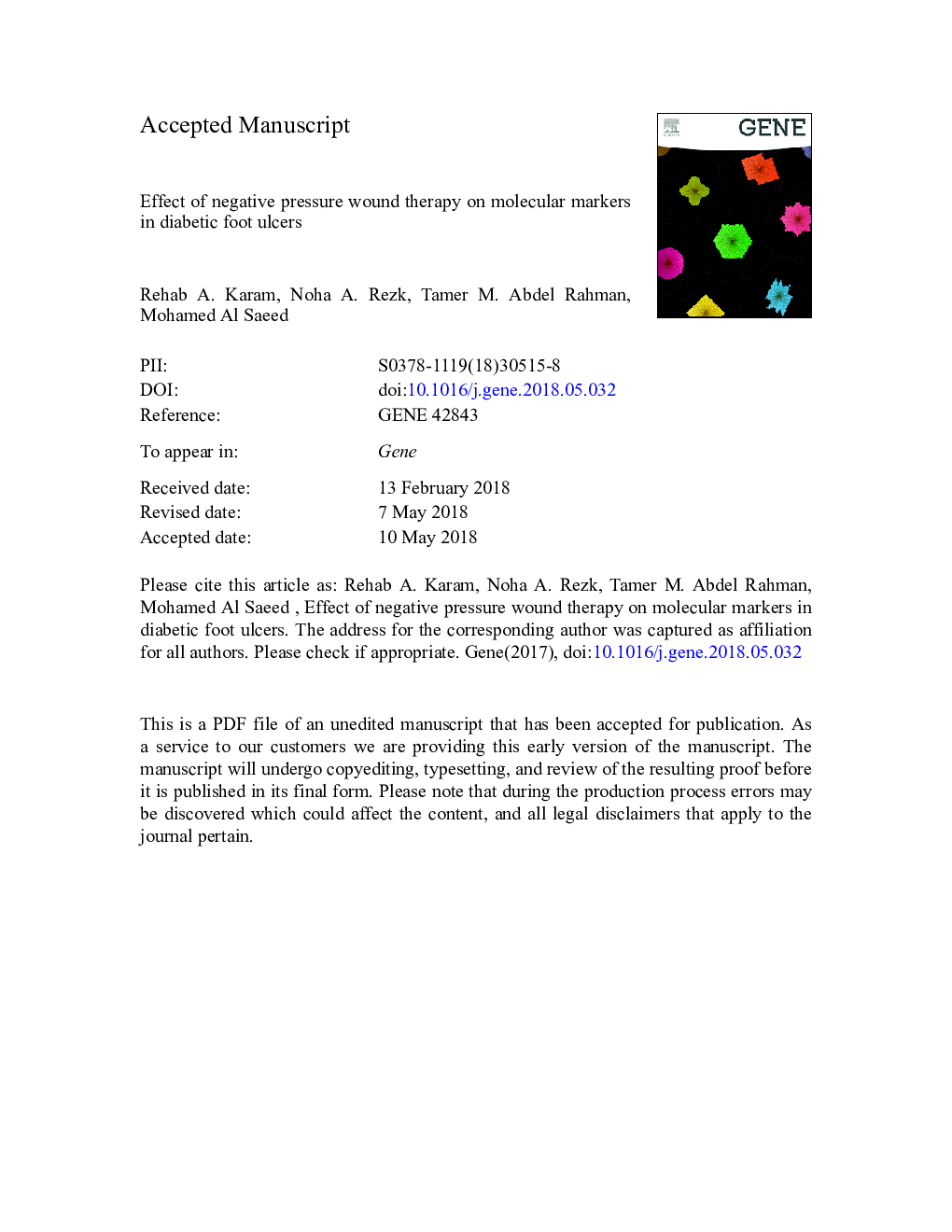| Article ID | Journal | Published Year | Pages | File Type |
|---|---|---|---|---|
| 8644821 | Gene | 2018 | 34 Pages |
Abstract
Diabetic foot ulcers are one of the most common complications of diabetes with high morbidity and mortality. Negative pressure wound therapy (NPWT) is one of the treatment modalities that facilitates the wound healing process; however, its molecular mechanism remains unclear. The aim of this study was to investigate the mechanism of action of NPWT in the treatment of diabetic foot ulcers via measuring the tissue expression of genes related to the wound healing process. The study included 40 patients with diabetic foot ulceration, 20 of them received NPWT and the other 20 were a control group treated with advanced moist therapy. Granulation tissue biopsies were obtained before and 10â¯days after treatment in both groups and subjected to real-time polymerase chain reaction to measure the mRNA expression of TGF-β1, VEGF, TNF-α, IL-1β, MMP-1, MMP-9 and TIMP-1 which are involved in the wound healing pathway. After 10â¯days of treatment with NPWT, the mRNA levels of IL-1β, TNF-α, MMP-1, and MMP-9 were significantly downregulated, while the levels of VEGF, TGF-β1 and TIMP-1 were significantly increased. Our study demonstrated that NPWT promotes wound healing in diabetic foot ulcers possibly by affecting growth factors, inflammatory cytokines, and matrix metalloproteinases.
Keywords
Related Topics
Life Sciences
Biochemistry, Genetics and Molecular Biology
Genetics
Authors
Rehab A. Karam, Noha A. Rezk, Tamer M. Abdel Rahman, Mohamed Al Saeed,
